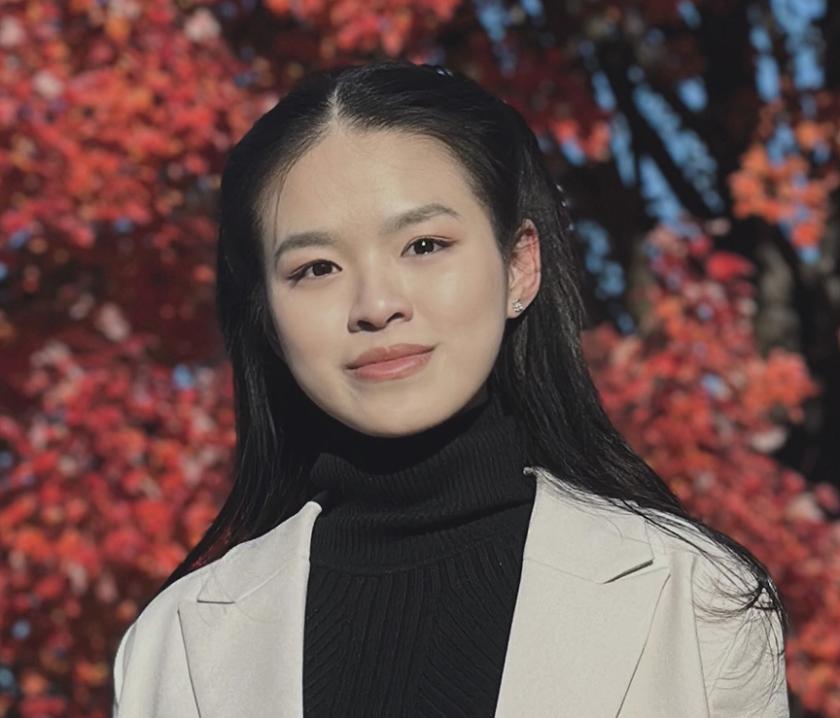
BSIS + DS student Jenny Mai discusses her study abroad experience in Melbourne, Australia, a country filled with energy, culture, and a laid-back but driven attitude. According to Mai, "living in Melbourne has been more transformative" than she expected!
Why did you decide to study abroad?
I lived in Sydney for a year when I was younger, and something about the country—the energy, culture, laid-back but driven attitude—left a mark on me. I was curious to see how I’d experience it differently with more life experience. When the opportunity arose to study abroad in Melbourne, it felt like the perfect time to return. I wanted to see how I'd grown, not just in terms of my academics but as a person, and how I'd handle living in a new city again and navigating all the unexpected challenges that come with it.
Where are you currently studying, and how long is your program?
I'm studying in Melbourne, Australia, for a full calendar year.
Tell me about your experience so far.
Living in Melbourne has been more transformative than I expected. Before I arrived, I thought I knew how to handle stress and manage my time. Being here has taught me to learn time management in a whole new way. What's been incredible about Australia is that they allow international students to work, and I've taken full advantage of that. Over the past months, I've worked in a cosmetics store, chemist warehouse, Korean restaurant, and cafe. Every role has taught me something new, whether it's how to stay calm during the rush of a busy cafe shift or how to problem-solve in a fast-paced retail setting. It's not something you can learn in a classroom, but understanding people and being flexible in how I engage with them is probably the most valuable skill I've gained. Australia's working culture and lifestyle balance are different from the U.S., and I've found that the slower pace outside of work hours has made me reflect on how I manage my own time and energy. I used to think being productive meant constantly working, but now I know it’s more about managing your energy in a way that's sustainable.
Would you recommend studying abroad to other students, and if so, why?
Without a doubt, yes—but not for the reasons that people usually mention. Studying abroad isn't just about seeing a new place or traveling, it's about confronting yourself in ways that you wouldn't if you stayed in your comfort zone. You're constantly thrown into situations where you must think on your feet, whether it's figuring out a new city, managing a packed schedule, or adapting to different work environments. I've had to become my own biggest advocate by learning when to push myself and when to step back and take care of myself.
Melbourne, in particular, has been a great place for this because it's such a diverse city. You meet people from all over the world, and each interaction forces you to adjust to the way you communicate or approach a situation. It teaches you to be more empathetic and open-minded, but it also pushes you to develop a level of self-reliance that I think is incredibly important.
How has this experience benefited your academic and professional life?
Academically, this experience has pushed me in ways I didn't expect. At the University of Melbourne, I've been part of some really exciting projects that blend AI and data science in innovative ways. One of the most interesting projects I've worked on is a reinforcement learning experiment, where I led a team to develop a web app for AI reasoning with Tic Tac Toe games. It's the kind of hands-on project that bridges theory with practical applications, and managing the team has taught me a lot about leadership, especially in an academic context. I have had to navigate everything from management challenges in building the backend architecture to collaborating on user interface design and deploying the project for production. Beyond that, working with predictive models in my Taxi Fare Analysis and IMDb Score Prediction projects has made me appreciate the power of machine learning, not just as a tool for prediction, but as a way to optimize outcomes and provide actionable insights.
On the professional side, the mix of academics and work experience has been incredibly valuable. Working in retail environments while managing data-driven projects has shown me how to approach problem-solving from multiple angles. I have learned how to be adaptable, think critically under pressure, and communicate effectively with people who might not come from a technical background. This experience has been a huge step in shaping the professional I want to become.